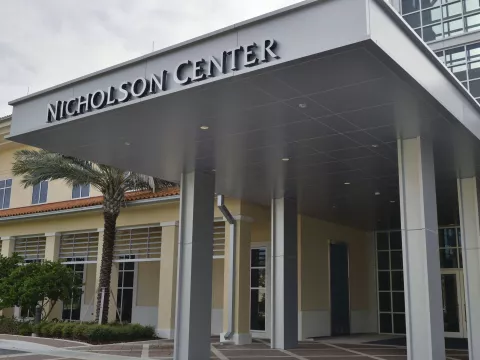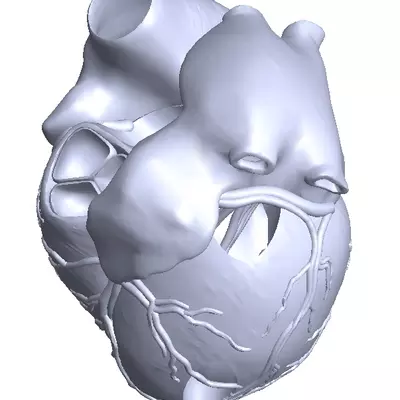- AdventHealth

What is a robotic hysterectomy?
Robotic hysterectomy is a minimally invasive advanced laparoscopic surgery employing state-of-the-art robot technology and magnified 3-D vision to remove a woman’s uterus. The da Vinci robotic micro-instruments translate the precise movements of the surgeons’ hands while filtering out even the slightest tremors. High-definition scaled 3-D imaging allows for optimum viewing and manipulation of sensitive nerves and tissues.
In robotic-assisted laparoscopic hysterectomy, the surgeon uses a computer to control the surgical instruments, allowing the surgeon to control the robot's movements steadily and precisely. This lets him or her get into tiny spaces more easily and have a better view of the operation than with conventional laparoscopic surgery. This procedure continues to be researched to improve the technique.
What is the procedure’s advantage over a traditional hysterectomy?
The advantages of a robotic hysterectomy are:
- Shorter hospital stays
- Less pain, blood loss and scarring
- Quick return to regular activities
- Fewer infections and other post-surgery complications
What is the recovery time?
The recovery time for this procedure can be as short as six days to two weeks.
Do I prepare for a robotic hysterectomy the same way I would prepare for a traditional surgery?
The day of surgery, surgeons require a physical exam to ensure patients’ general health is well enough to be put under. This may also include ordering tests, such as blood tests, a chest X-ray, or an electrocardiogram (ECG). Be sure to tell your surgeon about any medications you take at home, including herbal supplements and other over-the-counter medications. You may be told to stop taking aspirin or other medications that thins your blood and could lead to increased bleeding.
How do I know if a robotic hysterectomy is right for me?
Talking to your doctor about your condition and how to achieve optimal health and recovery time is the best way to determine if a robotic hysterectomy is best option.
To learn more about the research we are doing at the Nicholson Center by visiting our website today.



